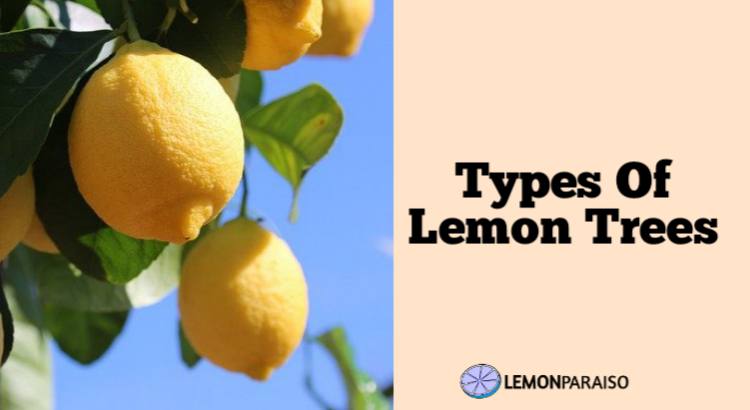Potted Lemon Tree Dropping Fruit: (Here’s The Reasons Why)
Growing a lemon tree in a pot can be a rewarding experience, yielding fresh, tangy fruits right from your own living room or patio. However, it can also present unique challenges, such as the common issue of fruit drop.
Why Is My Potted Lemon Tree Dropping Fruit?
A potted lemon tree might be dropping fruit due to a variety of factors. Some of these include poor environmental conditions such as inadequate light, extreme temperature fluctuations, or improper watering. In addition, biological stressors such as pests, diseases, or nutrient deficiencies can also lead to fruit drop.
Physical factors such as the stability of the tree itself, especially when carrying a heavy fruit load, can also contribute to fruit drop. It’s important to understand that these factors can be interrelated and one issue can often exacerbate another. Lastly, if a tree has been recently transplanted, the shock or stress of this change can also cause the tree to drop fruit.
Does Stress Or Shock From Transplanting Cause A Potted Lemon Tree To Drop Fruit?
Yes, stress or shock from transplanting can indeed cause a potted lemon tree to drop fruit. The process of moving a tree can disrupt its root system, causing stress and potentially leading to fruit drop. This is particularly true if the transplanting process wasn’t gentle or if the tree was moved from one significantly different environment to another.
To minimize this stress, it’s important to handle the tree carefully during transplanting, and try to match the new environment to the old one as closely as possible. Also, allowing the tree time to recover after the move, with adequate care, can help reduce the chance of fruit drop.
Can Insufficient Sunlight Or Low Light Conditions Lead To Fruit Drop In A Potted Lemon Tree?
Insufficient sunlight or low light conditions can certainly lead to fruit drop in a potted lemon tree. Lemon trees are sun-loving plants that require at least 6 to 8 hours of sunlight each day for optimal health and fruit production. Without adequate sunlight, the tree may struggle to photosynthesize effectively, which can lead to poor health and fruit drop.
In low light conditions, the tree may also become leggy as it stretches towards the light, further compromising its overall health and stability. To avoid this, it’s crucial to place your potted lemon tree in a location where it gets plenty of sunlight, preferably direct sunlight.
Is Overwatering Or Underwatering A Potential Cause For A Potted Lemon Tree To Drop Fruit?
Overwatering and underwatering are both potential causes for a potted lemon tree to drop its fruit. Lemon trees need a delicate balance of moisture — too much water can cause root rot, while too little can lead to dehydration. Both situations stress the tree, and a stressed tree is more likely to drop its fruit.
It’s best to water a potted lemon tree when the top inch of soil is dry to the touch. Avoid letting the tree sit in standing water, and make sure the pot has good drainage to prevent water logging. At the same time, don’t let the soil dry out completely; maintaining consistent soil moisture is key.
Are There Any Specific Pests Or Diseases That Can Cause Fruit Drop In A Potted Lemon Tree?
Several pests and diseases can cause a potted lemon tree to drop fruit. Aphids, scale insects, spider mites, and citrus leaf miners are common pests that can stress a lemon tree, leading to fruit drop. Additionally, fungal diseases like root rot or canker can also cause significant harm.
If you notice pests or signs of disease, it’s crucial to take action as soon as possible. Depending on the issue, you might need to use an insecticidal soap, a fungicide, or consider more natural methods of pest control. Regular monitoring and quick action can help keep your tree healthy and full of fruit.
Can Nutrient Deficiencies Or Imbalances Affect Fruit Retention In A Potted Lemon Tree?
Nutrient deficiencies or imbalances can definitely affect fruit retention in a potted lemon tree. Lemon trees require a balanced supply of nutrients, including nitrogen, phosphorus, and potassium, along with trace elements like calcium and magnesium. An imbalance or deficiency can lead to poor tree health, resulting in fruit drop.
One common symptom of nutrient deficiency is yellowing leaves. If you notice this or other signs of poor health, consider getting a soil test to identify any nutrient deficiencies. Then, you can address the problem with the right type of fertilizer or soil amendment.
Should I Provide Additional Support Or Stabilization For Potted Lemon Tree Branches To Prevent Fruit Drop?
Providing additional support or stabilization for potted lemon tree branches can help prevent fruit drop. When a lemon tree carries a heavy load of fruit, its branches can become weighed down, which might result in fruit drop or even broken branches.
Adding support in the form of stakes or a trellis can help bear the weight of the fruit, reducing strain on the tree. Remember, it’s essential to install these supports gently to avoid damaging the roots or trunk of the tree. Always provide the support early on, ideally before the tree starts to bear fruit.
Can Extreme Temperature Fluctuations Or Drafts Result In Fruit Dropping From A Potted Lemon Tree?
Extreme temperature fluctuations or drafts can result in fruit dropping from a potted lemon tree. Lemon trees prefer a consistent, warm climate and sudden changes in temperature or exposure to cold drafts can cause stress, leading to fruit drop. This is especially true if the temperature drops below freezing.
Try to maintain a consistent temperature for your lemon tree, avoiding placing it near drafts from doors, windows, or air conditioning units. If you live in a region where temperatures drop significantly in winter, consider bringing your potted lemon tree indoors during the coldest months to protect it from the chill.
Are There Any Specific Care Tips Or Practices To Prevent Fruit Drop In A Potted Lemon Tree?
Preventing fruit drop in a potted lemon tree often involves a holistic care approach. Regularly check your tree for signs of pests or disease and treat any issues promptly. Ensure your tree gets plenty of sunlight, maintain consistent watering practices, and protect it from extreme temperature changes.
Additionally, consider adding support for heavy fruit loads, provide a balanced supply of nutrients, and handle the tree gently if it needs to be transplanted. Regular pruning can also help maintain the tree’s health and manage its growth. By taking these steps, you can create the best conditions for your potted lemon tree to retain its fruit.



